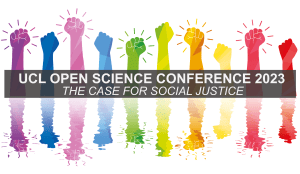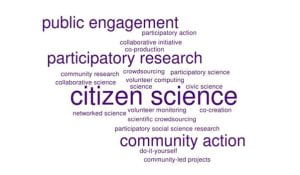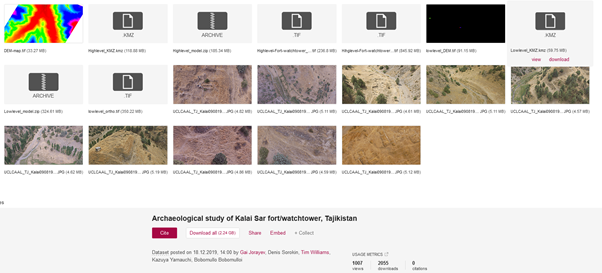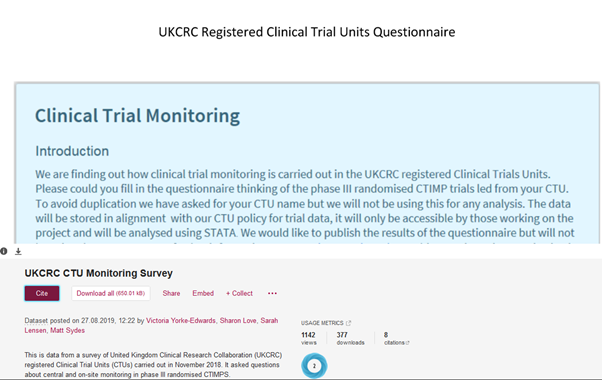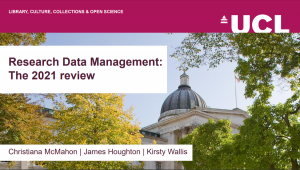From Seed to Blossom: Reflecting on Nearly 5 Years of the UCL Research Data Repository
By Rafael, on 13 March 2024
Guest post by Dr Christiana McMahon, Research Data Support Officer
In June 2019, the Research Data Management team from Library Services and the Research Data Group from the Centre for Advanced Research Computing embarked on an exciting journey: the launch of the UCL Research Data Repository. As we approach our fifth anniversary, we find ourselves reflecting on the progress we’ve made, what we’ve achieved and what could be improved. To better understand the impact and gather insights from our UCL community, we invite you to complete this survey here. Join us in celebrating this important milestone!
Since its inception, the Research Data Repository has been a pivotal tool for openness and accessibility, offering UCL staff and research students a platform to archive, publish, and share their research outputs as widely and openly as possible. From datasets to figures, presentations to software, the repository has become a hub of scholarly exchange and collaboration. The journey thus far has been marked by significant milestones. Since 2019, we’ve seen over 385,000 downloads and 610,000 views, underscoring the repository’s impact and reach within the academic community.
The Research Data Repository enables users to:
- archive and preserve research outputs on a longer-term basis at UCL;
- facilitate the discovery and sharing of work by publishing metadata records;
- assign a digital object identifier (DOI) to permanently link to and identify a record in the online catalogue as part of a full data citation enabling others to reference published works;
- comply with the UCL Research Data policy and other applicable research policies.
Three highlights from the Research Data Repository:
The most viewed record is: Silvester, Christopher; Hillson, Simon (2019). Photographs used for Structure from Motion 3D Dental model generation Part 2. University College London. Figure. https://doi.org/10.5522/04/9939419
The most downloaded record is: Acton, Sophie; Kriston-Vizi, Janos; Singh, Tanya; Martinez, Victor (2019). RNA seq – PDPN/CLEC-2 transcription in FRCs. University College London. Dataset. https://doi.org/10.5522/04/9976112.v1
The most cited record is: Manescu, Petru; Shaw, Mike; Elmi, Muna; Zajiczek, Lydia; Claveau, Remy; Pawar, Vijay; et al. (2020). Giemsa Stained Thick Blood Films for Clinical Microscopy Malaria Diagnosis with Deep Neural Networks Dataset.. University College London. Dataset. https://doi.org/10.5522/04/12173568.v1
These milestones demonstrate the repository’s impact and reach within the academic community, serving as a testament to the collaborative efforts of our dedicated researchers and staff.
Why is the Research Data Repository essential to supporting academic communities across UCL?
It mostly stems from wanting researchers to manage and share their outputs in line with the FAIR principles (Findable, Accessible, Interoperable and Reusable) and embrace open science and scholarship practices. Essentially, by depositing outputs into the Research Data Repository and creating associated metadata records, other researchers and members of the public are better placed to find, understand, combine, and reuse the outputs of our research without major technical barriers. In turn, this can help to enhance transparency of the research process, promote enhanced research integrity, and ultimately maximise the value of research findings.
Going forward:
To continue building and developing the service, we are asking staff and research students to tell us what they think. What works well? What could be improved? Which functionalities would you like to see added or enhanced?
The survey closes on Friday, March 22nd, so get in touch and tell us what you think!
Survey link: https://forms.microsoft.com/e/U20yJPAi0W
More information about the Research Data Repository can be found in Open Science & Research Support dedicated webpage.
Any questions or queries about the Research Data Repository can be sent to: researchdatarepository@ucl.ac.uk.
General research data management queries can be sent to: lib-researchsupport@ucl.ac.uk.
Any questions or queries about open science can be directed to: openscience@ucl.ac.uk.
Get involved!
 The UCL Office for Open Science and Scholarship invites you to contribute to the open science and scholarship movement. Stay connected for updates, events, and opportunities. Follow us on X, formerly Twitter, and join our mailing list to be part of the conversation!
The UCL Office for Open Science and Scholarship invites you to contribute to the open science and scholarship movement. Stay connected for updates, events, and opportunities. Follow us on X, formerly Twitter, and join our mailing list to be part of the conversation!
 Close
Close


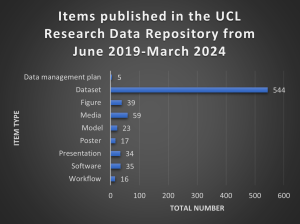

!["We invite you to share your insights on the UCL Research Repository and help us improve our service! Take just 5-10 mins to complete a brief internal survey. Thank you! [Link: https://buff.ly/3Tg1Fna] Image: A figure with blue & green clothing with a speech bubble reading 'tell us what you think'.](https://blogs.ucl.ac.uk/open-access/files/2024/04/Copy-of-Pink-Minimal-Recruitment-Twitter-Post-1-5d3ce82295fad533-300x169.png)
